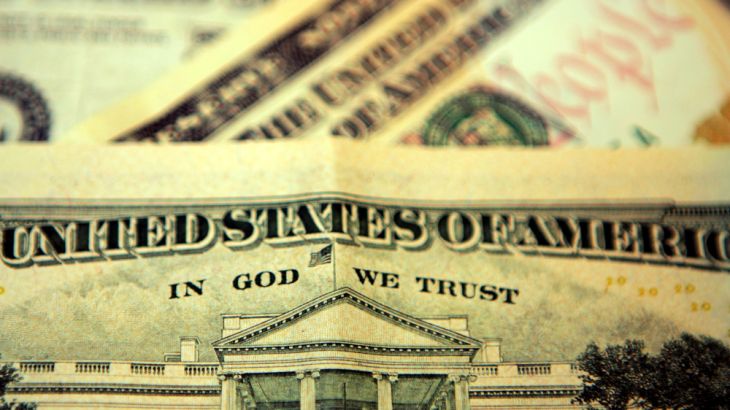
US elections: Why economic anxiety is on the rise
We ask what kind of economy the new US president will inherit and why the world is afraid of a potential Brexit moment.
US Incorporated is on the brink of finding out who will inherit the White House in one of the most unpredictable elections in modern history. On the eve of that vote, we look at what kind of economy the new president will inherit and why the world is afraid of a potential Brexit moment.
Russell Jones, a partner at Llewellyn Consulting, walks us through the difference between a US economy under Hillary Clinton and a US economy under Donald Trump.
Keep reading
list of 4 itemsWhy is Germany maintaining economic ties with China?
Behind India’s Manipur conflict: A tale of drugs, armed groups and politics
China’s economy beats expectations, growing 5.3 percent in first quarter
According to him, “they are poles apart … Under Trump everything that we’ve thought is certain since 1945 is under threat … We’re going to get huge tax cuts, strange deregulation, more inequality. A really strange cocktail that doesn’t have any numbers that add up.”
“I think markets and economists generally will be much more concerned by a Trump win than by a Hillary Clinton win,” Jones adds.
We also take a look at something called the VIX Index. Basically it’s a fear gauge, and as the presidential race has narrowed, the index has been going up.
“The VIX tells us a lot about uncertainty and it is known as the fear index. I would expect if the polls continue to hint at a very close fight in this election campaign, if not a Trump victory, that that index will continue to march higher. It’s not good news. A lot of uncertainty in financial markets is also reflected in uncertainty for businesses and consumers as well. And it does tell you that people are beginning to grasp the possibility of a very different macroeconomic environment, policy environment, from the one we’ve been used to,” explains Jones.
However, Jones says that the financial markets themselves have a very powerful way of exerting discipline on politicians: “The fact is, the populists very rarely get what they say they are going to deliver when they actually get into power.”
Al Jazeera’s White House correspondent Patty Culhane looks at the role of comedy in the 2016 US presidential election.
Also on this episode of Counting the Cost:
The Brexit court ruling: A landmark decision by the High Court has thrown a spanner in the works for the United Kingdom. The government cannot trigger Article 50 – to leave the EU – without approval from the parliament. We examine how the markets and economists have digested the news. Callum Williams, UK economics correspondent for The Economist, talks to Counting the Cost about the economic effect of the ruling and the Brexit process.
Egypt’s big currency move: Egypt is allowing its pound to float for the first time, but while that helps secure a badly needed loan from the IMF, it may make life more difficult for everyday Egyptians. Jason Tuvey, Middle East economist at Capital Economics, believes that “in the short term, there will be some pain, inflation is to rise quite sharply”.
China’s aviation prowess: We went to an air show in Guangdong Province to see how far technological innovation has come in the People’s Republic of China.